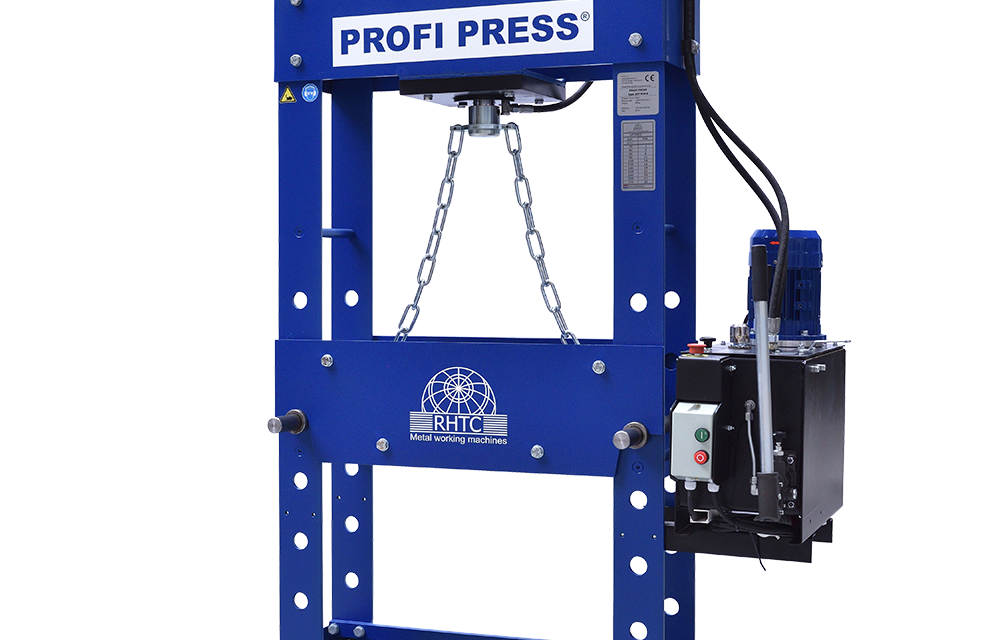Metalworking Machinery: Mechanical Press Or Hydraulic Press
Looking for metalworking machinery for sale? Workshop Press is one of the leading suppliers of metalworking machinery including motorised and manual hydraulic press machines. So what are press machines used for? Press machines are used to perform different types of metalworking processes such as forging, due cutting, and stamping. At Workshop Press, you’ll find many types of metalworking machinery for sale. However, our motorised and hydraulic presses are by far some of the most popular. Although both machines serve the same purpose, there are some key differences that will determine which type of press machine to go for. So what is the difference between a hydraulic and a mechanical/ motorised press?
What Is The Difference Between A Hydraulic And A Mechanical Press?
Generally speaking, a key difference between a hydraulic press and a mechanical one is the production speed. A mechanical press will often offer a higher production rate than a hydraulic one. However, in terms of flexibility, a hydraulic press can offer more versatility for complex metal forming processes. That being said, there are other factors that also come into play when differentiating the two types of press machines.
How Does A Mechanical Press Work?
A mechanical press generates power mechanically through a motor. The motor is connected to a crankshaft that powders the ram and flywheel. Depending on the size of the mechanical press, a clutch will either control the motor directly, or the flywheel will activate the in-motion gear system which will rotate the crankshaft.
Due to using a flywheel, kinetic energy can be stored and conveyed to the rest of the machine. With this in mind, the machines have the potential to yield a higher level of energy and achieve high production speeds and forces. Mechanical presses are simple to set up and operate, which means they are perfect for achieving fast and repeatable results.
How Does A Hydraulic Press Work?
We’ve learned how a mechanical press works, but how does a hydraulic press machine work? A hydraulic press exerts force on a fluid which then generates power. Unlike a mechanical (or motorised) press machine, the amount of force a hydraulic press machine can generate depends on the operating pressure and the size of the cylinder bore. The unit itself also helps to determine the speed of the ram. With many factors helping to determine the force and speed, hydraulic presses can be very versatile when it comes to varying the store lengths.
Related: 30 Ton Hydraulic Press | How Does It Work?
Mechanical Press Vs Hydraulic Press
What Are The Advantages Of A Mechanical Press?
- High production efficiency
- High level of control over operation speed
- Simple set up (leading to reduced upfront costs and labour costs)
- More environmentally friendly (no hydraulic fluid required)
What Are The Disadvantages Of A Mechanical Press?
- Limited capacity – the fixed stroke length can make the machines unsuitable for certain applications
- High maintenance costs – often expensive to replace parts
What Are The Advantages Of A Hydraulic Press Machine?
- Full tonnage through strokes – can generate full force anywhere during the stroke
- More economical maintenance costs
- Flexible designs and sizes to choose from
What Are The Disadvantages Of A Hydraulic Press Machine?
- Risk of leakage due to the fact the machines use hydraulic fluid
- Low speed – can result in slower production rate
Metalworking Machinery For Sale
If you are looking for metalworking machinery for sale and would like to find out more about our range of hydraulic and mechanical press machines, then get in touch with us today. Explore our website for more information, or call +44 01926 911728 to speak to a member of our helpful and friendly team.
If you have found this blog helpful, then you may wish to read our previous blog: Why Use A Four Column Hydraulic Press.

